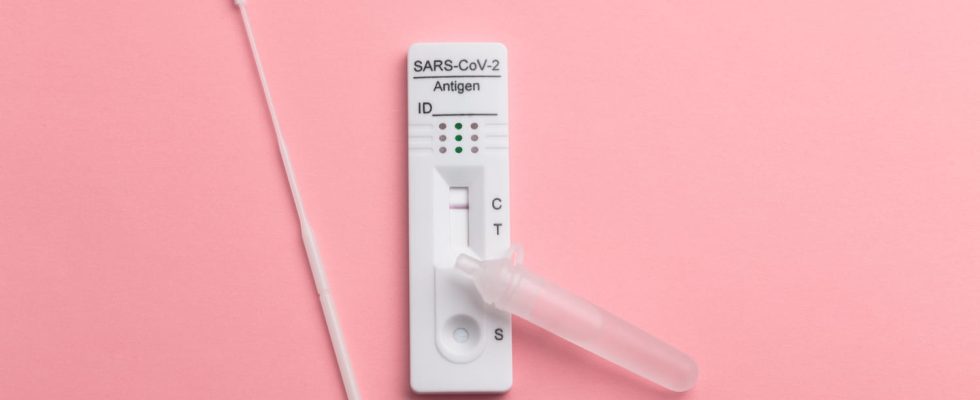It is still possible to be tested if you have symptoms suggestive of Covid, but reimbursement is no longer systematic. How much does an antigen test cost?
Cold, runny nose, fever, sore throat… You can always get test for Covid-19. Coronavirus screening is possible in laboratory or in pharmacywith or without an appointment, via tests PCR or antigens. Reimbursement for Covid tests is no longer systematic since March 2023. And according to The Pharmacist’s Dailysupport for antigen testing could still evolve.
How to get tested against Covid in pharmacies?
Screening for Covid-19 in pharmacies is at the discretion of pharmacists, not all of them offer it, there is no obligation. THE samples can be taken by pharmacists and pharmacy assistants and students who have completed their first year in pharmacy under the responsibility of a pharmacist. The tests carried out are always antigenic tests. A medical prescription is not necessary to take a Covid test in a pharmacy.
Reimbursement of Covid tests
Covid-19 tests are not no longer 100% refunded since March 1, 2023 (decree published in the Official Journal on February 28, 2023). A moderating ticket, that is to say a remainder payable by the insured, is requested. This remains to be paid 30 to 40% depending on the professional who performs the test is “fully reimbursed by mutual or complementary health insurance in the vast majority of cases” specifies theHealth Insurance. 100% refund is maintained for the following people, as well as for health professionals – and this, even in the absence of a prescription:
- patients with long-term illness (ALD);
- people aged 65 and over;
- minors;
- professionals in the medical and medico-social sectors, upon presentation of proof attesting to their status;
- persons benefiting from an exemption under maternity insurance;
- people undergoing collective screening.
For whom do Covid tests remain free?
Covid-19 screening tests remain 100% covered for people at risk of having a serious form of the disease, i.e. for:
- people recognized in long term condition;
- the people aged 65 and over;
- young people under the age of 18;
- THE health professionals, because of their daily contact with the most vulnerable populations;
- THE immunocompromised people;
- persons subject to collective screening.
The tests are also 100% covered under common law exemptions (maternity insurance, invalidity, etc.).
When to do a Covid test?
There has been no test protocol since February 1, 2023. On the other hand, it is always advised to test yourself if you have symptoms suggestive of a Covid-19 infection, at most within 4 days if an antigenic test is carried out to increase its reliability. For people with Covid symptoms for more than 4 days, the nasopharyngeal PCR test is more advisable as it is more reliable. For the self-tests, be aware that it is advisable to repeat them to increase their reliability.
What is the cost of Covid tests?
The prices vary according to the type of test (RT-PCR or antigenic test), the professional who carries them out, the day and the place where they are carried out (week/Sunday, home/office, mainland or overseas, etc.) .
► The self-tests cost 3 euros in pharmacies (5 euros for tests intended for children).
► For nasopharyngeal PCR testscarried out by medical biology laboratories, the price isaround 40 euros.
► For antigenic tests (TAG) made in pharmacies, it is necessary to count 20 euros.
How long does it take to get the results?
- The result of a PCR test is known within 24 to 48 hours for the patient (whether the sample is nasopharyngeal or salivary).
- THE antigen tests deliver their results in 30 minutes.
- THE self-tests deliver their results less than 30 minutes.
- The tests serological carried out in laboratories are returned within 24 hours.
- The rapid TROD serological tests give their results in less than 30 minutes.
What if the Covid test is positive?
Starting the February 1, 2023L’systematic isolation for people who tested positive for Covid-19 is no longer required. “On the other hand, as with any illness with an acute respiratory infection, it remains strongly recommended that people who test positive for Covid-19, (…) respect barrier gestures (distance, mask, editor’s note) and D’avoid contact with fragile people” clarified the Ministry of Health
| KEY DATES FOR COVID-19 SCREENING IN FRANCE |
|---|
|
